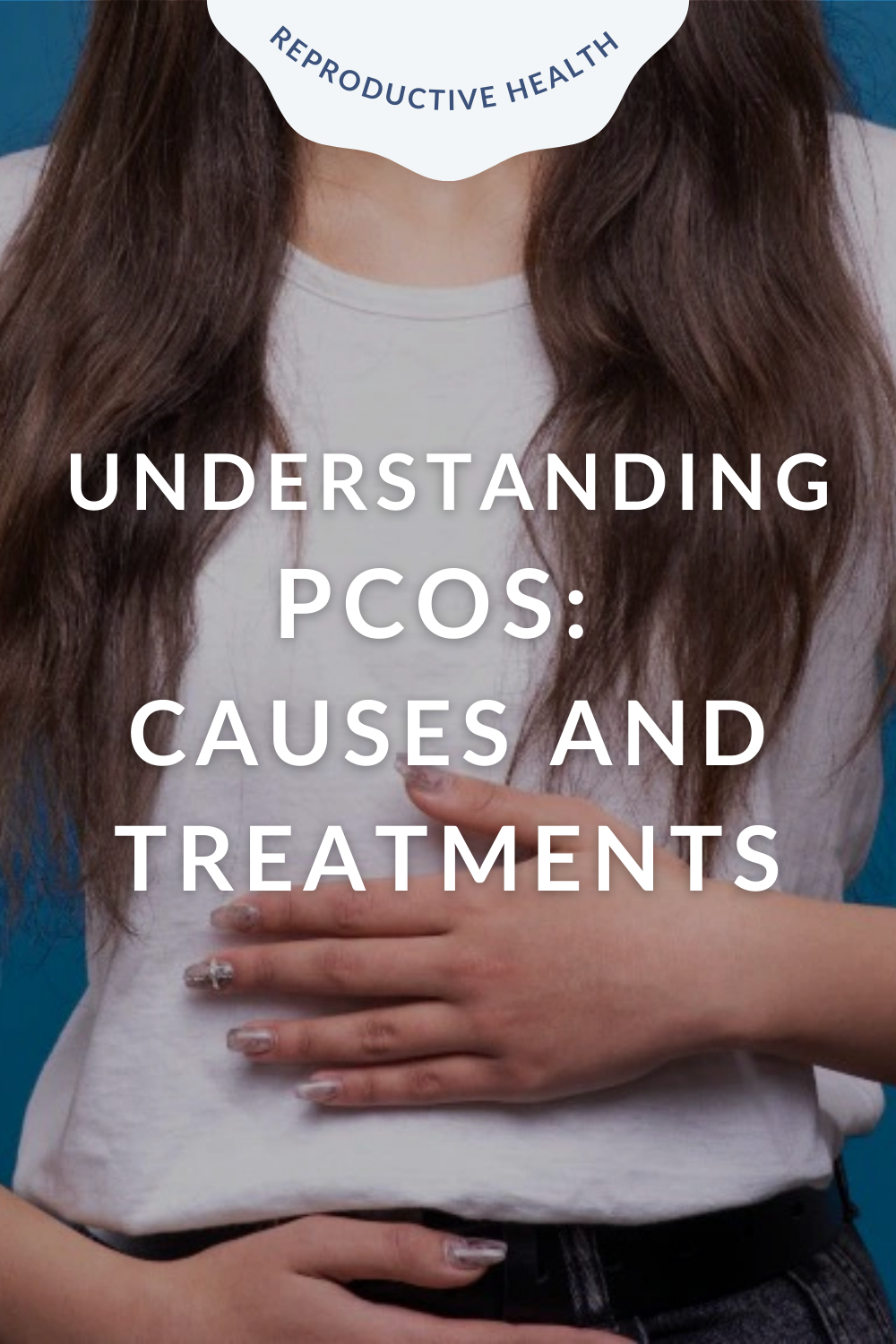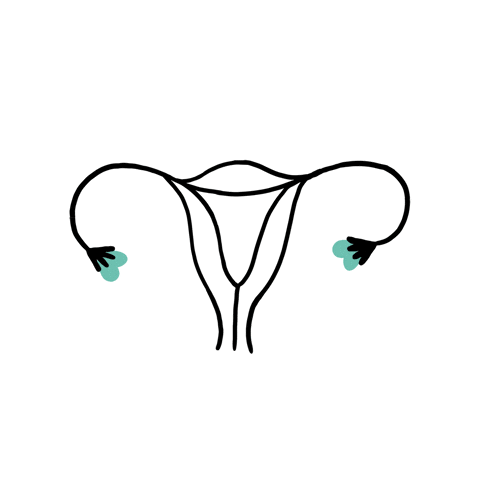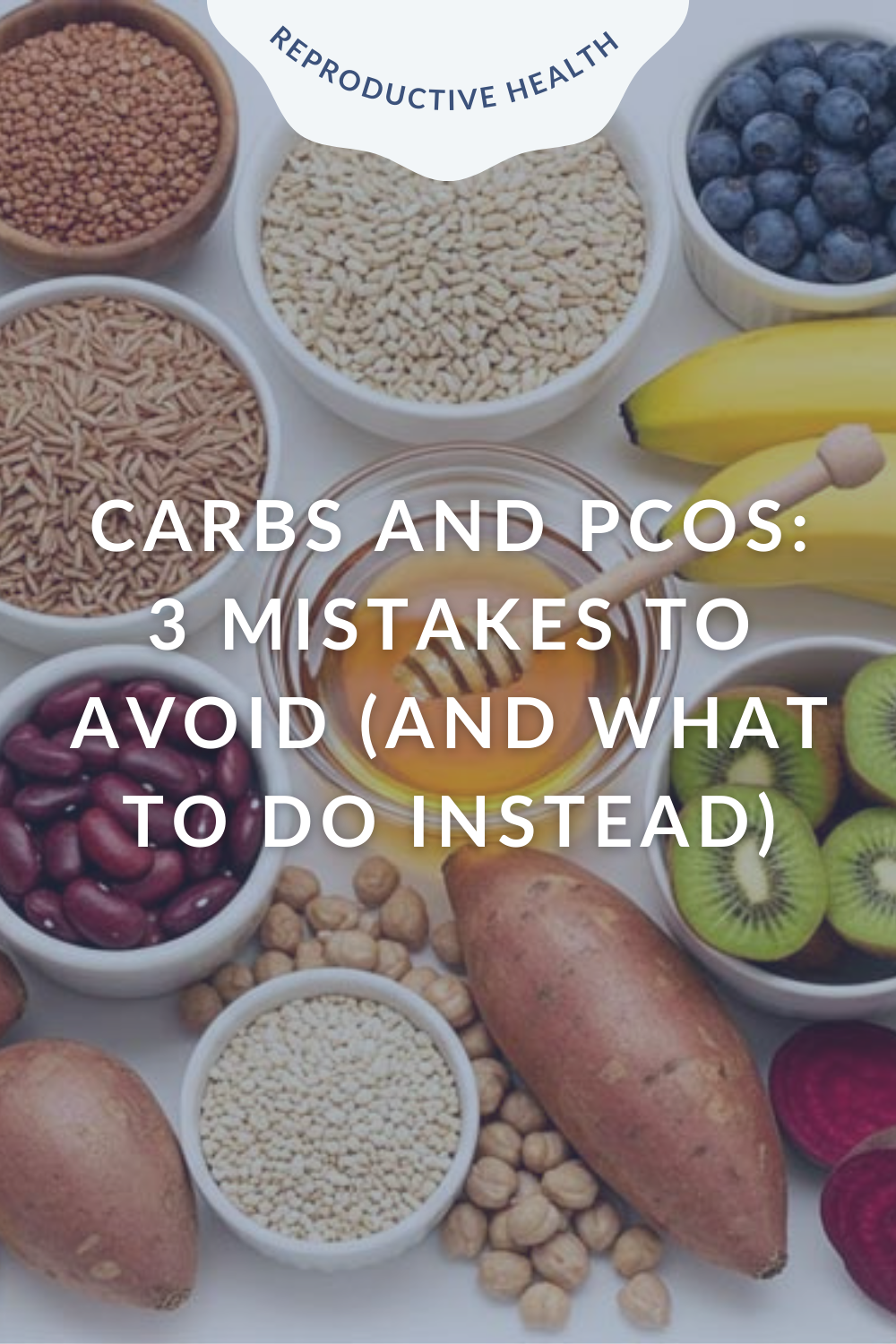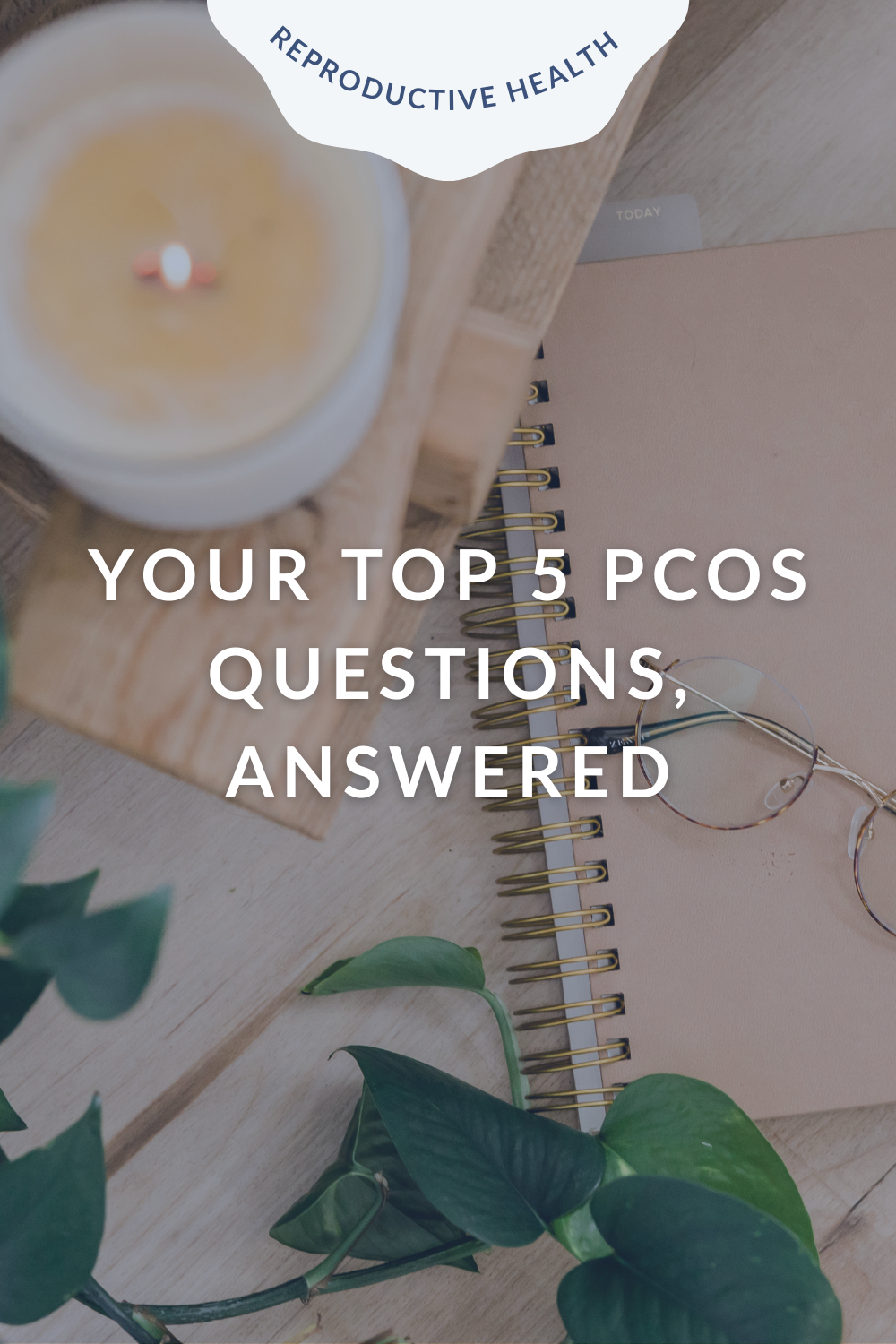Understanding PCOS: Causes and Treatments
In recent years, you’ve likely known someone who’s been diagnosed with Polycystic Ovary Syndrome (PCOS) - or perhaps you’re living with it yourself!
If so, you’re not alone. PCOS is the most common endocrine disorder affecting pre-menopausal people with ovaries, impacting around 10% of women.
PCOS is a significant public health issue, presenting with endocrine, reproductive, cardiometabolic, dermatologic, and psychological features. Despite its prevalence and the wide-ranging impact it can have on health, it’s often misunderstood or oversimplified!
That’s why today, I’m breaking it all down for you. I’ll be outlining exactly what PCOS is, its causes, the role of insulin resistance and inflammation, and the treatment options available, so you can better understand what’s happening in your body and how to find relief.
PS - Want to get started on finding relief from PCOS pain? Download a Free PCOS Symptom tracker to get clarity on your unique symptoms and find long-term solutions.
Background of PCOS
Living with PCOS is hard. The day-to-day challenges include excessive body hair, acne, intense cravings, mood swings, hair thinning, chronic fatigue, missing and painful periods, delayed fertility. Beyond that, having PCOS increases the risk of developing Type 2 diabetes, cardiometabolic disease, increases risk of premenopause and endometrial cancer, and mood disorders.
And I say this for educational purposes, but to also drive home the point that PCOS care is urgently needed. Because I think it’s stereotyped as just a reproductive disorder, that people tend to brush it off as only important if you want to get pregnant. That’s not the case! In fact, the misleading name of the condition, which focuses only on reproductive features, is the lack of recognition of diverse features of PCOS.
How does someone develop PCOS? To be clear, you can’t eat or not exercise your way into it. It’s caused by an interaction between genetics and environmental factors. There’s high family clustering and heritability, and environmental exposure to endocrine disrupts from in utero to across the lifespan. As such, PCOS is shaped by reproductive dysfunction and metabolic factors.
PCOS and Insulin Resistance
One of the hallmark features of PCOS is insulin resistance, which affects about 50-70% of people with PCOS, regardless of body size.
Here’s how it works:
Insulin is a hormone that your pancreas creates in response to eating glucose (sugar).
It works like a key, “unlocking” your cell walls, which allows sugar to move inside and be used as energy
With insulin resistance, the “keys” no longer fit into the cell walls.
The pancreas continues to create insulin. This leads to high levels of sugar and insulin in the bloodstream.
Since insulin is a growth hormone, this creates a vicious cycle. High insulin levels can trigger the ovaries to overproduce androgens, also known as male sex hormones. Excess androgens are responsible for acne, hair growth on the body and lack of menstrual periods.
High levels of insulin also promote weight gain, especially in the mid-section of the body - this is why many people may rapidly gain weight without changes to eating or exercise. In a world where weight stigma and discrimination is so rampant, this creates an extra challenge for those with PCOS. It’s the perfect storm that creates the increased odds for developing disordered eating and mood disorders.
PCOS and Insulin Resistance
Another key aspect of PCOS is chronic inflammation. The population with PCOS tend to have higher levels of inflammatory markers like C-reactive protein. What's interesting is that CRP levels can be high in people with PCOS even if they don’t have higher weight, showing that inflammation is a central part of PCOS, not just something caused by being at a higher weight.
PCOS Treatments
Thankfully, gone are the days where those with PCOS are simply given a birth control prescription and told to “come back when you want to get pregnant.”
Nowadays, there’s emerging research on nutrition and lifestyle interventions to help those with PCOS manage their symptoms and reduce risk for developing complications!
That said, medications still play an effective and essential role in managing PCOS for many people, so let’s cover those first.
PCOS Medications
Commonly prescribed medications for PCOS include:
Metformin. The PCOS guidelines state it can be beneficial for managing metabolic outcomes - including insulin resistance, glucose, and lipid profiles.
Combined Oral Contraceptive Pills, which play a significant role in managing symptoms. They are often used to regulate menstrual cycles in individuals with oligomenorrhea (infrequent periods), and they can also help reduce symptoms such as hirsutism (excessive hair growth), acne, and alopecia (hair thinning).
For some individuals, a combination of Metformin and COCP may be recommended, especially in high metabolic risk groups.
GLP-1’s, ant-androgen pharmacological agents, or medications like letrozole and clomiphene for fertility may also be recommended.
This is something that would be prescribed and monitored with your medical doctor (gynecologist, endocrinologist, primary care physician, fertility specialist). They will help tailor treatment plans according to your specific symptoms, metabolic profile, and reproductive goals.
PCOS Diet, Nutrition and Lifestyle
Nutrition plays a crucial role in managing PCOS symptoms because it directly impacts reproductive function, insulin sensitivity, and inflammation.
A balanced, varied and adequate dietary pattern can help increase insulin sensitivity and stabilize blood sugars, reduce inflammation, and ensure your body receives all the nutrients needed to function well. This is why I’m always advocating for more dietitians in hormone health - we play an important role in interdisciplinary healthcare for PCOS!
I think it's extra important for PCOS population to stay informed with evidence-based and sustainable nutrition content and care, because eating disorders are so prevalent here.
To get started on eating to manage PCOS, start with:
Regulating meal timing - this is directly correlated with your blood sugars, and thus insulin levels
Diversifying your diet to include more plants and lean animal sources (if omnivorous): fruits and vegetables, pulses, whole grains, nuts and seeds, fish, eggs, lean poultry
Pay special attention to dietary omega-3 fatty acids, soluble fibres and antioxidants
Re-connecting with you body and practicing mindful eating principles
I want to be clear there’s no “perfect” diet, and that all foods do truly fit - what matters more is the overall pattern. A great way to think of it is “Nutrition by addition.” What can we add to our bowls and plates, rather than take away?
For example, if you like congee for breakfast, can you add some gai lan and fish? If you like bagels, can you add some lox? If you enjoy pasta, can you add grilled eggplant and zucchini, along with shrimp?
When it comes to exercise, sleep and stress management - these are three other pillars that shouldn't be ignored. These are independently correlated with your body’s ability to control blood sugars after eating, and also help manage a healthy stress load on your body.
That said, there's no "perfect" way to move (truly, any movement is good exercise). Find something that's truly enjoyable and that you can stick with.
Takeaway
PCOS is a complex condition that’s shaped by reproductive dysfunction and metabolic factors. It has diverse features and requires interdisciplinary care with shared decision making with the patient. There are many medications that are effective at managing both symptoms and prognosis of PCOS. There are also many dietary and lifestyle interventions that are essential.
Start by eating balanced meals rich in varied plant and lean animal foods, regulating meal timing, and don’t forget to take care of yourself through movement, sleep and stress management.
Hi! I’m Trista
A Registered Dietitian and reproductive health expert. I’m here to help you gain confidence to overcome your Polycystic Ovary Syndrome and digestive health woes, while bettering your relationship with food.
CATEGORIES
Ready to take charge of your PCOS?
Join us in PCOS Recovery, a 12-week journey to take charge of your PCOS with diet, lifestyle and a supportive community.
Learn how to find relief from PCOS pain, stabilize blood sugars and sustain energy, support ovulation, beat the bloat and fuel with confidence.
References:
Aboeldalyl S, James C, Seyam E, Ibrahim EM, Shawki HE, Amer S. The Role of Chronic Inflammation in Polycystic Ovarian Syndrome-A Systematic Review and Meta-Analysis. Int J Mol Sci. 2021 Mar 8;22(5):2734. doi: 10.3390/ijms22052734. PMID: 33800490; PMCID: PMC7962967.
Harada M. Pathophysiology of polycystic ovary syndrome revisited: Current understanding and perspectives regarding future research. Reprod Med Biol. 2022 Oct 8;21(1):e12487. doi: 10.1002/rmb2.12487. PMID: 36310656; PMCID: PMC9601867.
Helena Teede et al. International Evidence-based Guideline for the Assessment and Management of Polycystic Ovary Syndrome 2023. Monash University. https://doi.org/10.26180/24003834.v1
Juhász, A.E., Stubnya, M.P., Teutsch, B. et al. Ranking the dietary interventions by their effectiveness in the management of polycystic ovary syndrome: a systematic review and network meta-analysis. Reprod Health 21, 28 (2024). https://doi.org/10.1186/s12978-024-01758-5
Lee I, Cooney LG, Saini S, Sammel MD, Allison KC, Dokras A. Increased odds of disordered eating in polycystic ovary syndrome: a systematic review and meta-analysis. Eat Weight Disord. 2019 Oct;24(5):787-797. doi: 10.1007/s40519-018-0533-y. Epub 2018 Jun 26. PMID: 29947018; PMCID: PMC7918293.















